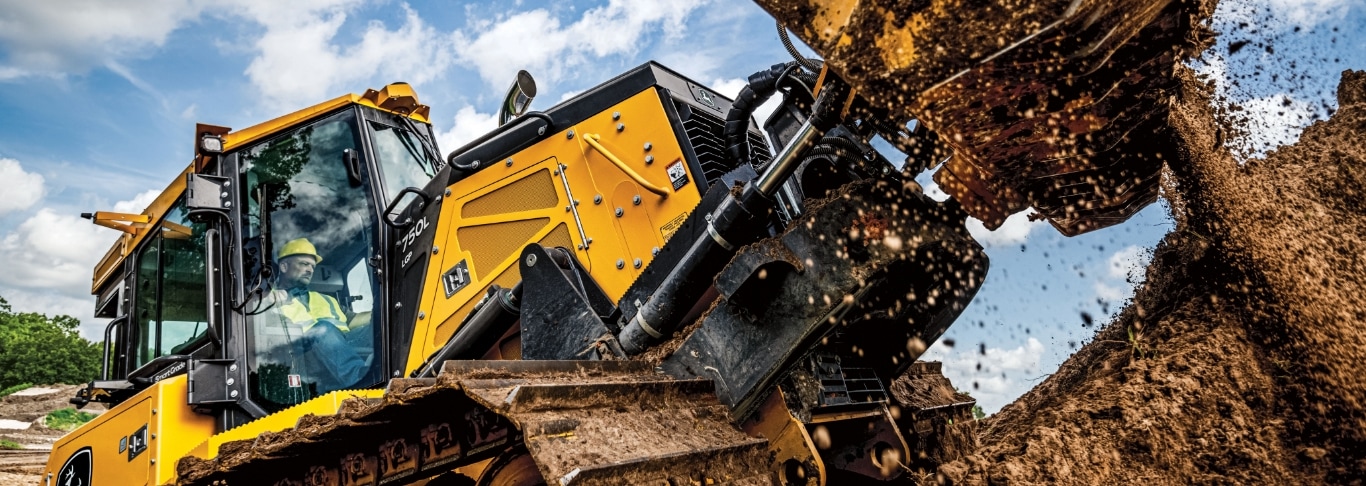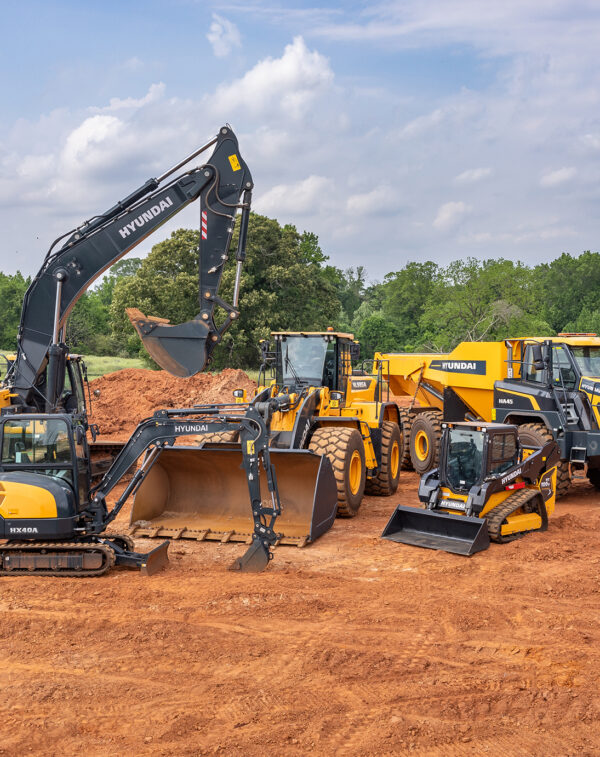Forklift Rental in Tuscaloosa AL: Versatile Lifting Solutions for Your Needs
Forklift Rental in Tuscaloosa AL: Versatile Lifting Solutions for Your Needs
Blog Article
Checking Out the Financial Benefits of Renting Building And Construction Devices Compared to Having It Long-Term
The choice in between leasing and owning construction devices is crucial for monetary management in the market. Leasing offers instant expense financial savings and operational adaptability, allowing business to designate sources a lot more successfully. On the other hand, possession features considerable long-term economic commitments, consisting of upkeep and devaluation. As contractors consider these options, the influence on capital, task timelines, and innovation gain access to becomes increasingly considerable. Comprehending these subtleties is crucial, particularly when taking into consideration just how they line up with details task demands and financial techniques. What factors should be focused on to make sure ideal decision-making in this complex landscape?

Cost Comparison: Renting Vs. Owning
When evaluating the financial effects of possessing versus renting out construction devices, a detailed price contrast is crucial for making educated choices. The selection between leasing and possessing can dramatically impact a company's lower line, and recognizing the linked costs is important.
Renting out building and construction devices usually includes lower in advance prices, permitting companies to allocate funding to various other functional demands. Rental contracts usually include versatile terms, allowing companies to accessibility advanced equipment without long-lasting commitments. This adaptability can be especially advantageous for temporary tasks or varying workloads. Nevertheless, rental expenses can gather gradually, possibly surpassing the expenditure of possession if tools is needed for a prolonged period.
On the other hand, owning building devices calls for a substantial first financial investment, along with continuous expenses such as funding, devaluation, and insurance policy. While ownership can bring about long-lasting savings, it also locks up funding and might not give the very same level of adaptability as leasing. Additionally, owning devices requires a commitment to its utilization, which might not always align with task needs.
Eventually, the choice to rent or have must be based on a detailed evaluation of certain task demands, financial ability, and lasting tactical objectives.

Upkeep Costs and Responsibilities
The option in between renting and owning building equipment not just includes economic considerations but also encompasses ongoing maintenance costs and duties. Possessing tools calls for a considerable commitment to its maintenance, which consists of routine evaluations, repair work, and potential upgrades. These duties can promptly collect, leading to unexpected expenses that can stress a budget.
In comparison, when leasing tools, maintenance is usually the responsibility of the rental company. This setup permits professionals to prevent the monetary concern linked with deterioration, along with the logistical obstacles of organizing repair work. Rental agreements frequently consist of arrangements for upkeep, indicating that contractors can focus on finishing jobs rather than stressing over tools condition.
Additionally, the diverse variety of devices available for lease allows companies to pick the current designs with innovative technology, which can boost effectiveness and productivity - scissor lift rental in Tuscaloosa Al. By going with services, companies can prevent the long-term obligation of tools devaluation and the linked maintenance headaches. Ultimately, reviewing upkeep expenditures and responsibilities is vital for making a notified decision about whether to have or rent out building equipment, significantly impacting overall project prices and operational performance

Depreciation Effect on Ownership

A considerable element to think about in the choice to possess building tools is the influence of depreciation on general possession expenses. Devaluation stands for the decrease in worth of the devices in time, affected by aspects such as use, damage, and advancements in innovation. As tools ages, its market worth reduces, which can considerably impact the proprietor's financial placement when it comes time to sell or trade the devices.
For building firms, this depreciation can convert to substantial losses if the devices is not used to its maximum possibility look at this now or if it lapses. Owners must represent depreciation in their monetary estimates, which can bring about greater general expenses compared to leasing. Furthermore, the tax ramifications of depreciation can be complex; while it might give some tax benefits, these are frequently offset by the fact of minimized resale value.
Eventually, the worry of depreciation stresses the importance of recognizing the long-term monetary dedication associated with possessing construction equipment. Companies must very carefully evaluate just how frequently they will certainly make use of the equipment and the prospective economic influence of depreciation to make an enlightened choice regarding possession versus renting.
Monetary Adaptability of Renting
Leasing building and construction equipment uses substantial financial versatility, enabling firms find more to allocate sources extra efficiently. This versatility is specifically important in a sector characterized by varying job needs and differing work. By opting to rent, companies can prevent the significant resources investment needed for buying equipment, maintaining cash money circulation for various other operational demands.
Furthermore, leasing tools enables companies to tailor their tools options to specific project requirements without the long-term commitment connected with ownership. This implies that companies can quickly scale their equipment inventory up or down based on current and awaited job needs. Subsequently, this adaptability minimizes the threat of over-investment in equipment that may become underutilized or obsolete over time.
Another financial benefit of renting out is the possibility for tax obligation advantages. Rental repayments are usually taken into consideration overhead, enabling instant tax reductions, unlike devaluation on owned equipment, which is spread over numerous years. scissor lift rental in Tuscaloosa Al. This prompt expense acknowledgment can additionally enhance a company's cash placement
Long-Term Job Considerations
When reviewing the long-lasting requirements of a building business, the decision in between renting out and having equipment ends up being extra complicated. For projects with extensive timelines, purchasing devices might seem advantageous due to the possibility for reduced total costs.
The building market is developing rapidly, with brand-new devices offering improved efficiency and safety attributes. This versatility is especially useful for companies that handle diverse tasks needing different kinds of devices.
Furthermore, economic stability plays a vital role. Owning tools commonly Resources involves significant capital expense and devaluation worries, while renting permits for more foreseeable budgeting and capital. Eventually, the option between renting and having ought to be straightened with the strategic objectives of the building and construction company, taking into consideration both existing and anticipated job needs.
Final Thought
In conclusion, renting building tools provides considerable economic benefits over long-term ownership. Eventually, the choice to rent out instead than very own aligns with the vibrant nature of building and construction tasks, permitting for flexibility and accessibility to the latest equipment without the financial concerns connected with ownership.
As devices ages, its market value decreases, which can dramatically influence the proprietor's economic placement when it comes time to trade the devices or offer.
Leasing building equipment provides substantial economic flexibility, allowing firms to allot sources a lot more effectively.Furthermore, renting equipment makes it possible for business to tailor their equipment choices to details job demands without the long-term dedication connected with ownership.In verdict, renting building and construction devices provides significant monetary advantages over lasting possession. Ultimately, the choice to lease instead than very own aligns with the dynamic nature of building and construction jobs, allowing for versatility and accessibility to the newest devices without the monetary worries associated with possession.
Report this page